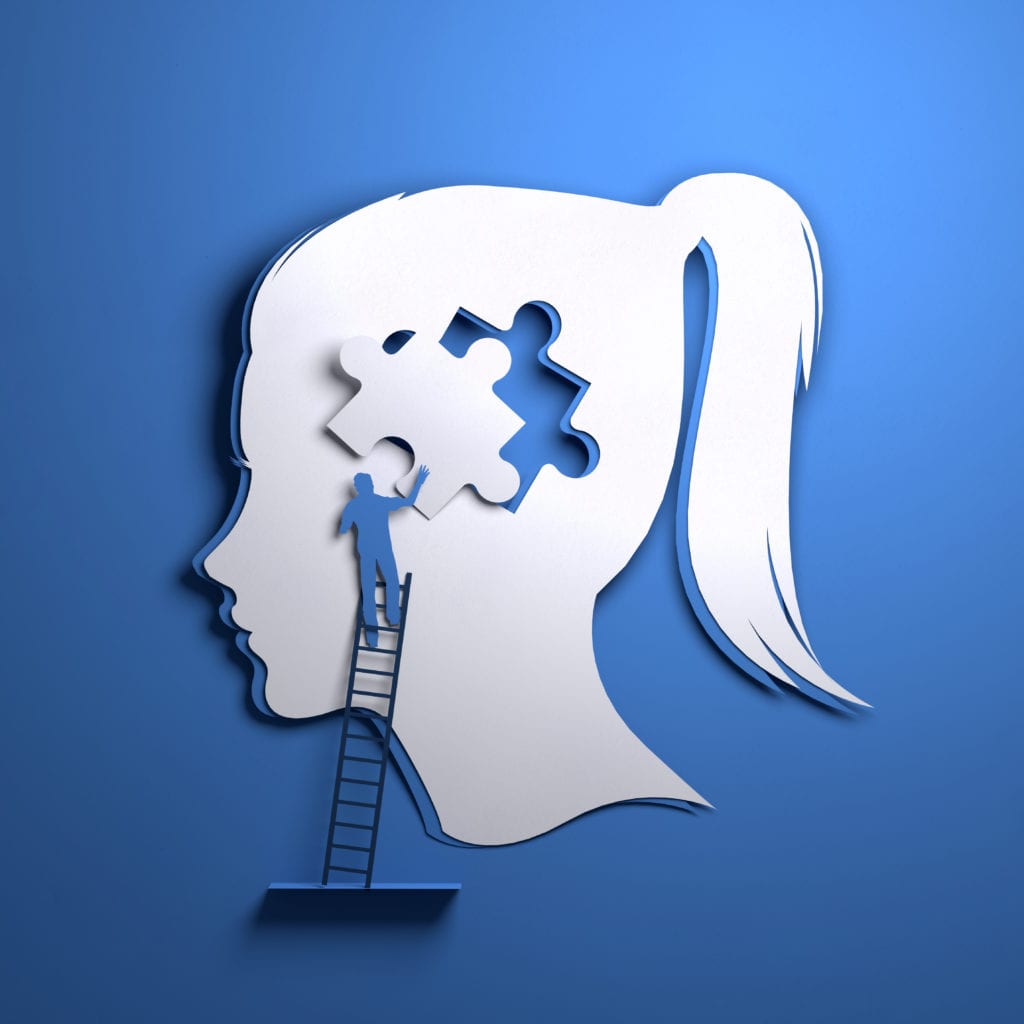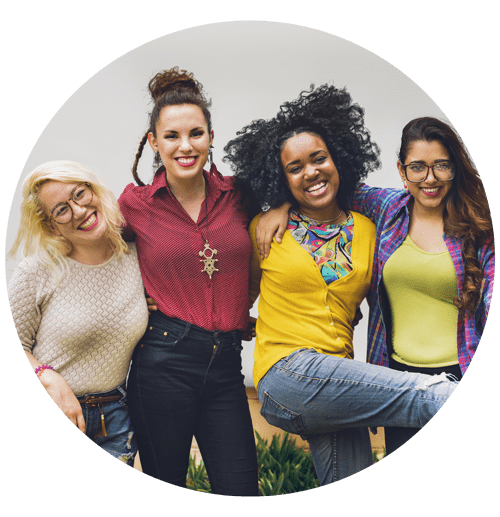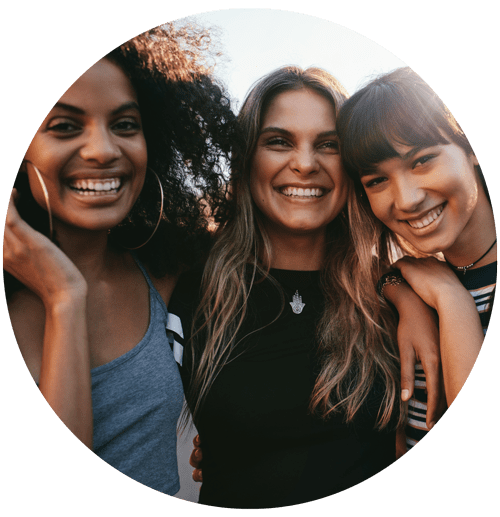Addiction & Women: A Detailed Guide
Substance Abuse Among Women: Statistics & Help
- Home
- Substance Abuse Among Women
Until as recently as two decades ago, most information and research related to substance abuse and dependence focused on men. Information regarding women and addiction began to come to light once various agencies within the United States began requiring federally funded studies to enroll more women in research studies related to addiction. Since this time, much has been learned about addiction in women and how gender impacts some types of addiction.
SUBSTANCE ABUSE & WOMEN
An Introduction to Drug Addiction in Women
Historically, men have exhibited significantly higher rates of substance use, abuse, and dependence. However, in recent years the gap between men who struggle with addiction and women who experience similar struggles has narrowed. When it comes to substance abuse disorders, the terminology is important. It is valuable to understand the difference between a few key terms used with frequency in the forthcoming paragraphs.
Substance Abuse
Abuse is defined in the Diagnostic and Statistical Manual of Mental Health Disorders (DSM-5) as the use of a substance excessively on a regular basis, despite incurring legal problems. This excessive use often results in legal issues, self-endangerment, loss of relationships, and failure to address major responsibilities. Those who abuse substances do not yet show signs of dependence.
Dependence
According to the DSM, people who are dependent on a substance exhibit at least three specific symptoms over a period of time. These symptoms include greater tolerance for a substance, withdrawal symptoms, ongoing desire to quit using, loss of control over substance use, preoccupation with substance use, and continuing use despite adverse consequences.
Addiction
The term addiction incorporates elements of both substance abuse and dependence. Symptoms of addiction involve the inability to control the use of a particular substance, continuous cravings, and continued use despite negative outcomes.
Although men are more likely to become addicts, women do experience challenges associated with substance abuse and addiction. Also, women face challenges related to substance abuse in other respects. Women often progress more quickly through substance use to arrive at addiction. Women also generally develop medical or social consequences related to addiction faster than men, often find it more challenging to quit using and are more susceptible to relapse after completing a women’s drug rehab program or a traditional rehabilitation program not explicitly geared towards women.
OUR SERVICES IN ORANGE COUNTY
Women's Addiction Treatment Center.
ADDICTION BY THE NUMBERS
Statistics of Substance Abuse in Females
Addiction and abuse statistics remain predominantly higher among men of all ages; however, this does not mean women are not susceptible to addiction. A recent study by the National Institute on Alcohol Abuse and Alcoholism shows almost five percent of women in the United States were considered to have (or diagnosed with) an alcohol use disorder. Also, twenty-three percent of women are addicted to nicotine. As with alcohol, women generally have a harder time quitting and are more likely to resume smoking after quitting than their male counterparts. Women, however, are almost equally as likely to abuse illegal substances as men. This includes drugs such as cocaine and methamphetamine. Women also report starting the use of these substances at a younger age than men. Women are also more likely than men to abuse prescription opioids.
Opioids are either obtained via prescription or through purchasing “street drugs” such as heroin. Women are more likely to obtain prescriptions for opioid painkillers. Recent studies also show women are more likely to engage in the nonmedical use of prescription opioid pain medications. It is thought that part of the reason for this is that women are more likely to experience chronic pain and to hoard any unused medicines prescribed to them for this purpose. Opioids are also commonly used by women during pregnancy. On average, up to twenty-two percent of women filled an opioid prescription during pregnancy in 2011. The rate of maternal opioid use disorders (at the time of delivery) quadrupled between 1999 and 2014. In terms of “street drugs” such as heroin, women are likely to use less heroin and for shorter periods than men.
The rates of stimulant use are similar among men and women. However, clinical studies suggest women may be more vulnerable to the reinforcing effects of stimulant drugs. Public health monitoring conducted in recent years suggests methamphetamine use is on the rise among women of all ages. Between 1995 and 2005, the rate of methamphetamine use in the United States more than doubled. Also, an increase in use among pregnant women has been noted. In 2006, twenty-four percent of women admitted to a federally funded substance abuse treatment center were pregnant.
In 2017, just over one percent of women reported using cocaine. Women also report first using cocaine at a younger age than men. The reasons women use cocaine are similar to those of methamphetamines and other stimulant drugs. As with methamphetamines, hormonal fluctuations are thought to increase cravings to use cocaine, especially during certain times of the menstrual cycle. It is also believed women experience stronger, more intense cravings than men when exposed to cues or triggers.
Alcohol is the most commonly abused substance in the United States, regardless of gender. Approximately seven to twelve percent of women abuse alcohol. Although men are still more likely to be diagnosed with an alcohol abuse disorder, research shows the gender gap related to alcoholism has been narrowing at a steady rate for the better part of the last fifty years. This is a concerning trend as women typically develop alcohol dependence more quickly than men.
Several biological factors are present in women, which makes them more vulnerable to the effects of alcohol. First, women tend to weigh less than men. Their bodies contain less water and more fatty tissues then a man’s. Because fat retains alcohol while water dilutes alcohol, a woman’s organs sustain greater exposure to alcohol when it is consumed. Women also have lower levels of two specific enzymes (alcohol dehydrogenase and aldehyde dehydrogenase), which break down alcohol in the stomach and liver. This means women’s bodies are less capable of breaking down the components of alcohol when it is consumed, and more of it enters the bloodstream.
Marijuana is the most commonly used illicit drug throughout the United States. To date, marijuana use has been legalized both medicinally and recreationally in many states, increasing its use. While women are not as likely to use marijuana as males (roughly five percent of women and ten percent of men, research shows women who do are more likely to progress into dependence or abuse far more quickly than males.
Overall, women are less likely to seek treatment for substance abuse disorders and addiction than men. The reasons behind this are not clearly understood. Still, there are several theories, including stigma, fear of being away from home (leaving children, etc.), co-occurring mental health disorders, or a history of trauma. For some women, treatment at a women’s addiction treatment center may be beneficial. At Anchored Tides, our program is designed for women with care provided by women. A program designed in this way offers a sense of safety and security for women who have experienced past trauma or are otherwise concerned about seeking treatment at a traditional co-ed program.
Drugs Women Abuse
Alcohol is the most commonly abused substance in the United States, regardless of gender. Approximately seven to twelve percent of women abuse alcohol. Although men are still more likely to be diagnosed with an alcohol abuse disorder, research shows the gender gap related to alcoholism has been narrowing at a steady rate for the better part of the last fifty years. This is a concerning trend as women typically develop alcohol dependence more quickly than men.
Several biological factors are present in women, which makes them more vulnerable to the effects of alcohol. First, women tend to weigh less than men. Their bodies contain less water and more fatty tissues then a man’s. Because fat retains alcohol while water dilutes alcohol, a woman’s organs sustain greater exposure to alcohol when it is consumed. Women also have lower levels of two specific enzymes (alcohol dehydrogenase and aldehyde dehydrogenase), which break down alcohol in the stomach and liver. This means women’s bodies are less capable of breaking down the components of alcohol when it is consumed, and more of it enters the bloodstream.
Marijuana is the most commonly used illicit drug throughout the United States. To date, marijuana use has been legalized both medicinally and recreationally in many states, increasing its use. While women are not as likely to use marijuana as males (roughly five percent of women and ten percent of men, research shows women who do are more likely to progress into dependence or abuse far more quickly than males.
Overall, women are less likely to seek treatment for substance abuse disorders and addiction than men. The reasons behind this are not clearly understood. Still, there are several theories, including stigma, fear of being away from home (leaving children, etc.), co-occurring mental health disorders, or a history of trauma. For some women, treatment at a women’s addiction treatment center may be beneficial. At Anchored Tides, our program is designed for women with care provided by women. A program designed in this way offers a sense of safety and security for women who have experienced past trauma or are otherwise concerned about seeking treatment at a traditional co-ed program.
Overall, women are less likely to seek treatment for substance abuse disorders and addiction than men. The reasons behind this are not clearly understood. Still, there are several theories, including stigma, fear of being away from home (leaving children, etc.), co-occurring mental health disorders, or a history of trauma. For some women, treatment at a women’s addiction treatment center may be beneficial. At Anchored Tides, our program is designed for women with care provided by women. A program designed in this way offers a sense of safety and security for women who have experienced past trauma or are otherwise concerned about seeking treatment at a traditional co-ed program.
DON'T WAIT ANY LONGER...
UNDERSTANDING THE DIFFERENCES
Drug Addiction in Men vs. Women
For many years, addiction research focused primarily on men. Men were the only participants in studies. Consequently, much of what the medical and addiction treatment community understood about substance abuse treatment centered around this understanding of how addiction impacts men. This has led to years of struggles for women regarding seeking and receiving treatment and understanding how substances affect women.
As a general rule, men are more likely to abuse drugs and alcohol. Many studies show the rate is almost double; however, the rates at which women abuse substances is increasing year after year. There are a few reasons why use rates among men and women differ. These include the impact of society (childcare responsibilities, addiction stigma, etc.) and biological factors (hormones, body size, and body composition). Harvard Medical School defines the notable differences between addiction in men and women center around susceptibility, recovery, and risk of relapse.
Susceptibility
Women are more likely to transition from substance abuse to dependence and addiction at a faster pace. Women are also more likely to self-medicate with illicit substances. Men are more likely to become addicts and abuse substances due to peer influence.
Recovery
Women are more likely to experience adverse side effects related to substance abuse, including liver damage and overdose. Men are likely to experience more intense withdrawal symptoms related to alcohol withdrawal than women.
Risk of Relapse
Women are more likely to experience intense cravings and relapse, whereas the risk of relapse for men is less likely.
THE DANGERS OF ACTIVE ADDICTION
How Substance Use Affects Women’s Health
UNDERSTANDING THE DIFFERENCES
Statistics Behind Women’s Health and Addiction
- Women who use drugs may experience adverse impacts on their cardiovascular system.
- Brain changes in women who use substances can be different from those experienced by men.
- Women are more likely to go to the emergency room or die from an overdose or adverse effects related to substance use.
- Women who use certain illicit substances are more likely to have panic attacks, anxiety, or depression.
- The risk of stillbirth is approximately three times greater in women to use tobacco, marijuana, opioids, or illegal drugs during pregnancy,
- Compared to men, it takes a shorter time (and less alcohol) for women to develop alcohol-induced liver disease, alcoholic hepatitis, or alcohol-induced brain damage.
- Compared to men, it takes a shorter time (and less alcohol) for women to develop alcohol-induced liver disease, alcoholic hepatitis, or alcohol-induced brain damage.
UNDERSTANDING THE DIFFERENCES
How Mental Health Worsens Addiction

Mental health conditions and addiction-related disorders present significant challenges when faced individually. When combined, the symptoms and emotional difficulties can be overwhelming. Women are significantly more likely to be diagnosed with mood disorders such as anxiety and depression. All people, regardless of gender who struggle with a mental illness, are more likely to abuse substances than others who do not share the same struggle. The presence of a mood disorder makes quitting and maintaining sobriety more challenging, then it would be without a co-occurring mental health diagnosis.
Research also shows a strong connection between disordered eating and substance abuse disorders. Among individuals diagnosed with anorexia nervosa and bulimia nervosa, a staggering eighty-five to ninety percent are female. Up to fifty percent of those diagnosed will also have a co-occurring substance abuse disorder.
Women are more likely to experience traumatic events, which creates a high incidence of post-traumatic stress disorder diagnoses among females. Also, rates of sexual abuse, rape, sexual assault, and domestic violence are far higher for female victims than males. A large number of women who have been victims of a violent crime such as those listed previously are likely to develop post-traumatic stress disorder. According to studies, almost thirty-five percent of those with post-traumatic stress disorder are also diagnosed with at least one substance use disorder.
Mental health conditions and addiction-related disorders present significant challenges when faced individually. When combined, the symptoms and emotional difficulties can be overwhelming. Women are significantly more likely to be diagnosed with mood disorders such as anxiety and depression. All people, regardless of gender who struggle with a mental illness, are more likely to abuse substances than others who do not share the same struggle. The presence of a mood disorder makes quitting and maintaining sobriety more challenging, then it would be without a co-occurring mental health diagnosis.
Research also shows a strong connection between disordered eating and substance abuse disorders. Among individuals diagnosed with anorexia nervosa and bulimia nervosa, a staggering eighty-five to ninety percent are female. Up to fifty percent of those diagnosed will also have a co-occurring substance abuse disorder.
Women are more likely to experience traumatic events, which creates a high incidence of post-traumatic stress disorder diagnoses among females. Also, rates of sexual abuse, rape, sexual assault, and domestic violence are far higher for female victims than males. A large number of women who have been victims of a violent crime such as those listed previously are likely to develop post-traumatic stress disorder. According to studies, almost thirty-five percent of those with post-traumatic stress disorder are also diagnosed with at least one substance use disorder.
WHERE TO TURN WHEN YOU NEED HELP
Programs That Can Help Women Struggling with Addiction
LEARN TO LOVE YOURSELF & LIFE
How Anchored Tides Can Help
Unfortunately, women are less likely to seek treatment for substance use disorders than men. Whether this relates to stigma, economic concerns, concerns for their family, or fears born out of past events, women struggle to receive the treatment they need for substance abuse and addiction as well as co-occurring mental health difficulties that often arise out of addiction. At Anchored Tides, our women-centered team understands the challenges faced by women seeking addiction treatment. Our treatment philosophy strives to ensure those who come to our program feel safe, valued, and, most of all, welcome in an environment where their recovery is our top priority. If you or a loved one are struggling with addiction, don’t continue to fear seeking treatment. Achieve sobriety at Anchored Tides where we provide treatment for women, by women.































